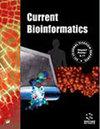用于膀胱癌患者分层的集成机器学习算法
IF 2.9
3区 生物学
Q3 BIOCHEMICAL RESEARCH METHODS
引用次数: 0
摘要
背景:膀胱癌是一种全球流行的恶性肿瘤,发病率和死亡率不断上升。将膀胱癌患者分为不同亚型对有效治疗这种癌症至关重要。因此,有必要开发一种专门针对膀胱癌的分层模型。目的:本研究旨在建立膀胱癌预后预测模型,主要目的是准确预测预后和治疗效果:本研究旨在建立膀胱癌预后预测模型,主要目的是准确预测预后和治疗效果。方法:我们收集了 10 个膀胱癌患者的数据集:我们从基因表达总库(GEO)、癌症基因组图谱(TCGA)数据库和 IMvigor210 数据集中收集了 10 个膀胱癌样本的数据集。利用基于机器学习的算法生成了 96 个模型,为每位患者确定了风险评分。根据风险评分,所有患者被分为两个不同的风险评分组。结果显示两组膀胱癌患者在预后、生物功能和药物敏感性方面存在显著差异。提名图模型表明,风险评分具有很强的预测效果和良好的临床实用性。结论本研究构建的风险评分可用于预测膀胱癌患者的预后、对药物治疗的反应和免疫治疗,为膀胱癌的个性化临床治疗提供帮助。 其他:无本文章由计算机程序翻译,如有差异,请以英文原文为准。
Integrated Machine Learning Algorithms for Stratification of Patients with Bladder Cancer
Background: Bladder cancer is a prevalent malignancy globally, characterized by rising incidence and mortality rates. Stratifying bladder cancer patients into different subtypes is crucial for the effective treatment of this form of cancer. Therefore, there is a need to develop a stratification model specific to bladder cancer. Purpose: This study aims to establish a prognostic prediction model for bladder cancer, with the primary goal of accurately predicting prognosis and treatment outcomes. objective: This study aims to establish a prognostic prediction model for bladder cancer, with the primary goal of accurately predicting prognosis and treatment outcomes. Methods: We collected datasets from 10 bladder cancer samples sourced from the Gene Expression Omnibus (GEO), the Cancer Genome Atlas (TCGA) databases, and IMvigor210 dataset. The machine learning based algorithms were used to generate 96 models for establishing the risk score for each patient. Based on the risk score, all the patients was classified into two different risk score groups. Results: The two groups of bladder cancer patients exhibited significant differences in prognosis, biological functions, and drug sensitivity. Nomogram model demonstrated that the risk score had a robust predictive effect with good clinical utility. Conclusion: The risk score constructed in this study can be utilized to predict the prognosis, response to drug treatment, and immunotherapy of bladder cancer patients, providing assistance for personalized clinical treatment of bladder cancer. other: None
求助全文
通过发布文献求助,成功后即可免费获取论文全文。
去求助
来源期刊

Current Bioinformatics
生物-生化研究方法
CiteScore
6.60
自引率
2.50%
发文量
77
审稿时长
>12 weeks
期刊介绍:
Current Bioinformatics aims to publish all the latest and outstanding developments in bioinformatics. Each issue contains a series of timely, in-depth/mini-reviews, research papers and guest edited thematic issues written by leaders in the field, covering a wide range of the integration of biology with computer and information science.
The journal focuses on advances in computational molecular/structural biology, encompassing areas such as computing in biomedicine and genomics, computational proteomics and systems biology, and metabolic pathway engineering. Developments in these fields have direct implications on key issues related to health care, medicine, genetic disorders, development of agricultural products, renewable energy, environmental protection, etc.
 求助内容:
求助内容: 应助结果提醒方式:
应助结果提醒方式:


